Covid in a Rohingya Camp
In Photos
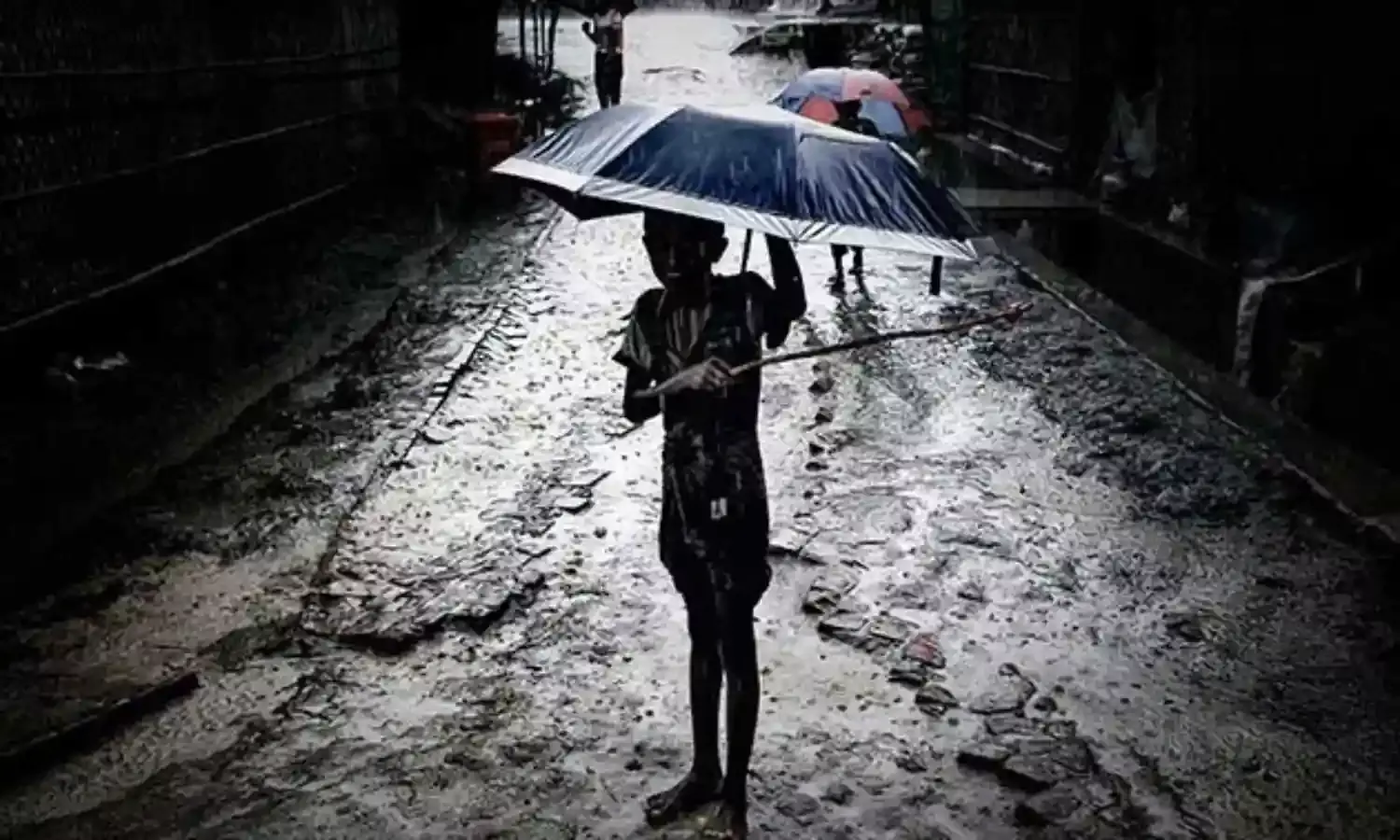
DHAKA: Mohammad Rakibul Hasan is a Bangladeshi documentary photographer, photojournalist, filmmaker and visual artist who has been visiting the camps in Cox’s Bazaar to document the Rohingya refugee crisis.
Rakibul Hasan is a recipient of the Lucie Awards Discovery of the Year 2018. He also received the 23rd Human Rights Press Awards from The Foreign Correspondents’ Club Hong Kong, Amnesty International and the Hong Kong Journalists Association, for his series “The Looted Honor” which documents Rohingya refugee rape survivors.
Rakibul Hasan has shared with IPS a selection of images document life in the Rohingya refugee camps.
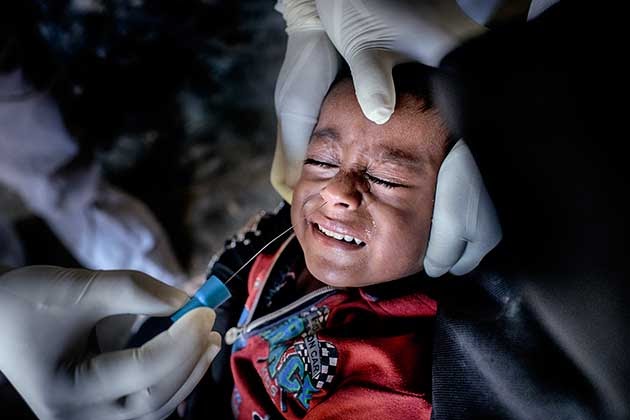
At a COVID-19 sample collection centre in a Rohingya refugee camp, a healthcare professional takes a swab from a Rohingya refugee child. During the pandemic, refugees are receiving information about COVID-19 protection but at the same time many COVID-19 myths have spread across the camp. Although the number of positive cases and the fatality rate is low, many people are asymptomatic as noted by healthcare providers. In addition, many refugees experiencing flu-like symptoms are said to be hiding in their make-shift homes and hoping to recover without medical intervention.
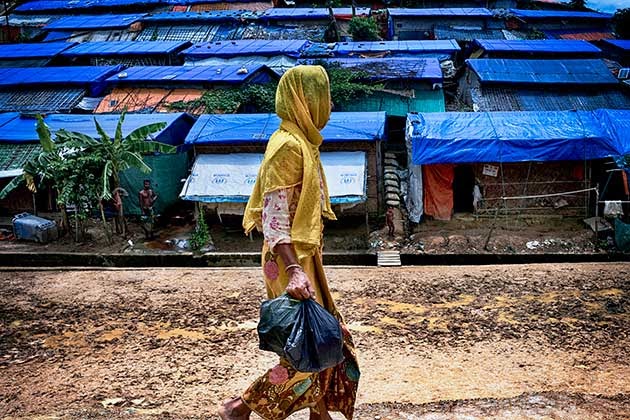
In the world’s largest refugee camp, Cox’s Bazar, many aren’t wearing masks. This is despite the fact that many non-profit organisations as well as the Bangladesh government are providing basic protective kits and conducting awareness programmes educating those living here on how to protect themselves from COVID-19. Though the number of COVID-19 cases are low as per the data from healthcare centres in the camps, many refugees are flocking to medical centres and local pharmacies to collect medicine for fevers and coughs.
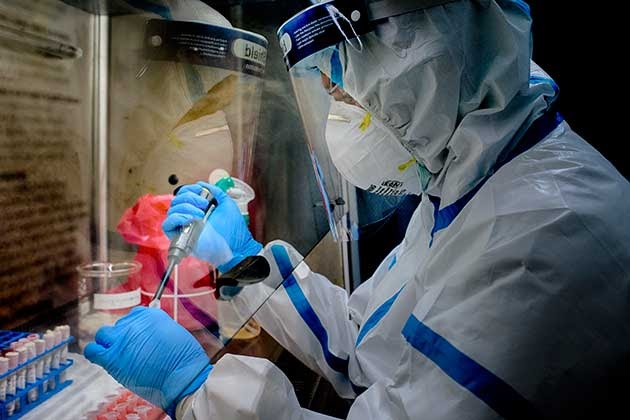
A healthcare professional checks a COVID-19 sample in a lab in Cox’s Bazar. A number of COVID-19 samples have been collected in the Rohingya refugee camps and all samples are sent to a designated testing lab operated by the Bangladesh government.
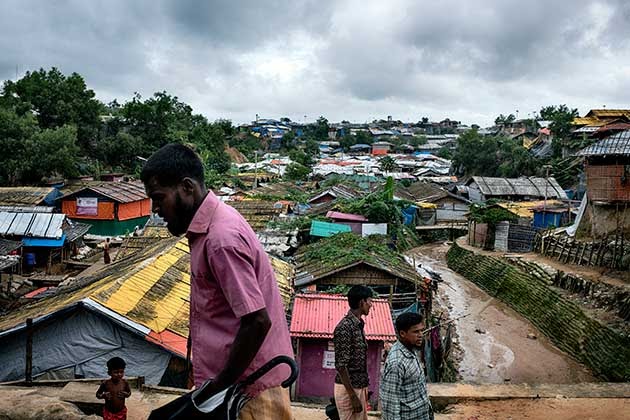
Drug trafficking and robbery by Rohingya refugees and local Bangladeshi smugglers around Teknaf, Cox’s Bazar, has become a difficult problem to solve.
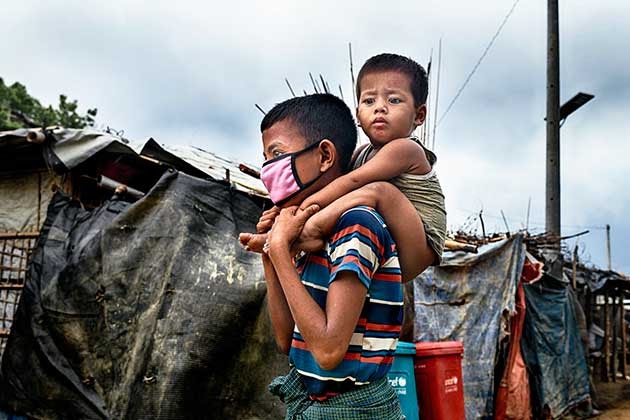
More than one million Muslim minority Rohingya’s fled Myanmar in 2017 due to ethnic cleansing, which has been condemned internationally as genocide. They now live in refugee camps in Cox’s Bazar, Bangladesh. Many are uneducated as the Myanmar government never allowed them to study in their country and currently many in the refugee camps still do not have access to education. It is a life of uncertainty. And the COVID-19 pandemic has pushed them to the edge.
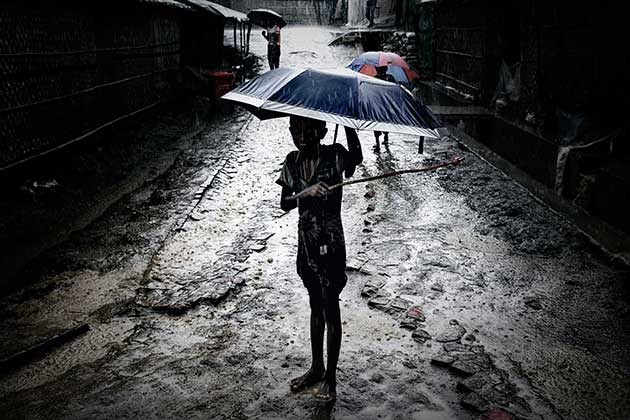
A Rohingya refugee boy holding an umbrella as the cyclonic storm Amphan hit the coastal region of Bangladesh, causing excessive rainfall in the Rohingya refugee camps.



